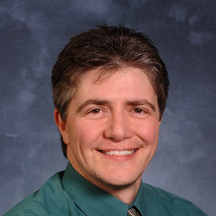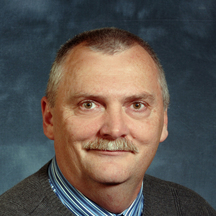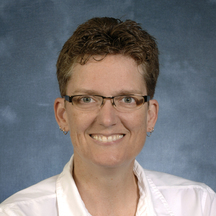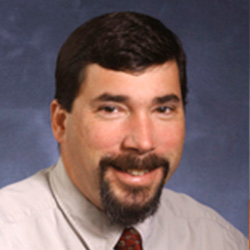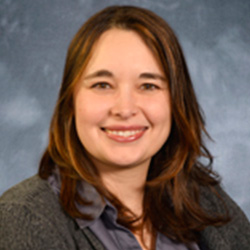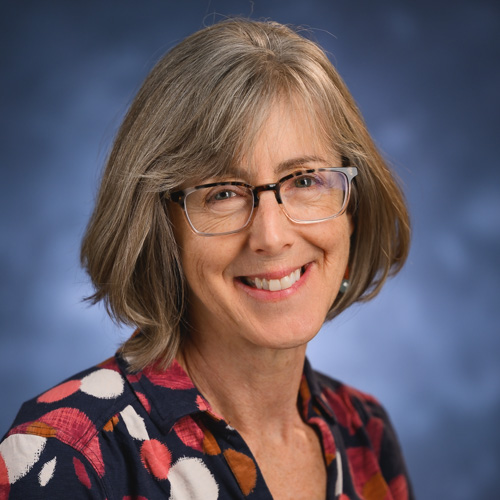Focus Area – Clinician Scientist
The Clinician Scientist Focus Area (CSFA) is to provide you with research opportunities that combine clinical and basic science. This focus area will be beneficial to two groups of students; firstly, those who wish to pursue careers in basic science, and secondly, students that are interested in pursuing an academic career as a veterinary specialist. This focus area does not provide research training that would be equivalent to a Master’s or PhD degree, but begins to teach the fundamental skills of scientific critical thinking and communication (written and oral), gives exposure to both bench and clinical research, and offers insight into non-traditional career choices involving research in veterinary medicine. Students in this focus area should plan to spend at least their first summer doing research. Research is also a substantial component of the 4th year experience.
Many faculty members have agreed to be advisors to students that select this focus area. Students who select the Clinician Scientist Focus Area select a primary advisor whom would then help the student assemble a small committee (composed of clinical and basic scientists) tailored to the interests and aims of the student. This committee guides you during your program and assists in selecting the appropriate selectives and senior rotations, depending on your interests and the research topic you choese. The focus area leader will provide oversight for the mentorship/planning process by approving all individual study plans generated by students and their advising committees. The focus area leader will also be responsible for approving externships (clinical or research) that are recommended via the advising process.
Focus Area Leader
Focus Area Advisors
Associate Dean & Director of Veterinary Medical Services
919-513-6411 anthony_blikslager@ncsu.eduSteps to pursue a focus as a clinician scientist
- Attend VMB 991 “Introduction to Research at the CVM” selective in the fall of the 1st year. Students in their 2nd year who wish to take this course must get approval from the CSFA coordinator before registering for this selective. Preference will be given to 1st year students and those who have already declared the CSFA.
- Identify an advisor by the end of the first year who can guide summer research experiences, selective and senior rotation choices.
- With the chosen advisor, design a guidance committee consisting of at least one basic scientist and one clinical scientist. Committee formation is to be completed and approved by the CSFA coordinator by the end of the first year.
- Outline CVM selectives and other activities (see below) with guidance from your mentor committee.
- In consultation with advisor committee, declare a clinical interest area by the end of the 2nd year.
- Make contacts/arrangements for internships/externships during summers and 4th year. (This will include at least one summer research experience after the 1st yr.)
- Plan 4th year CVM rotations (These will include a minimum of 6 blocks of research experience.)
- The CSFA is designed to start in the first year of the DVM curriculum to give students the greatest flexibility and oversight for their individualized, mentor-driven instructional program. In cases where a student has substantial previous research experience, he/she may be allowed to start in the second year but only with approval from the CSFA co-coordinators. It is expected that such second year starts will be rare events.
Year 1-3 Requirements
- VMB 991 Introduction to Research at the CVM or VMB 991 Intramural Research Experience selective (preferably in first semester)
- Please see Dr. Breen for alternative options
- Summer Research (between years 1 & 2) approved by the advising committee
- No required elective courses
- Encouraged to take research based selectives
Year 4 Requirements
To see course descriptions, visit the Clinical Year Course Catalog page.
Required Rotations
- VMB 976: Radiology
- VMB 977: Anesthesia
- VMP 977: Necropsy
- VMP 978: Clinical Pathology & Lab Med (* if not taken as 3rd-year Selective)
- VMC 939: Small Animal Primary Care
- VMB 962: Clinician Scientist Research Experience [6 blocks required; 2 blocks must be taken consecutively]
CHOOSE ONE Medicine Rotation
- VMC 971: Medicine/Small Animal [2 consecutive blocks]
- VMC 979: Equine Medicine
CHOOSE ONE Surgery Rotation
- VMC 973G: Small Animal Surgery
- VMC 973O: Small Animal Orthopedics OR VMC 994O: Extramural Experiences – Small Animal Orthopedics
- VMC 975: Equine Surgery
- VMC 968: Equine Orthopedics
CHOOSE ONE Emergency Rotation
- VMC 960: Small Animal Emergency
- VMC 966: Equine Emergency
CHOOSE ONE Specialty Rotation
- VMC 972: Cardiology
- VMC 983: Dermatology
- VMC 949: Equine Primary Care [2 consecutive blocks] (Instructor Approval)
- VMC 978: Equine Lameness & Imaging (Instructor Approval)
- VMC 993: Equine Special Topics (Instructor Approval)
- VMC 988: Exotic Animal Medicine
- VMP 990E: Extramural Experiences – Equine
- VMP990F: Extramural Experiences – Food Animal/Mixed
- VMC 980: Medical Oncology
- VMC 986: Advanced Medicine/Small Animal
- VMC 984: Neurology
- VMC 982: Ophthalmology
- VMC 948: Radiation Oncology
Other Rotations
Students choosing the CSFA should meet with their mentor / research committee to select the other required clinical senior rotations, based on their own career goals and to compliment their research activities. CSFA students will be given equal priority for their required rotations with students in the other focus areas. This list must be completed and approved by the guidance committee by the end of the second year.
Other Experiences
Clinical Conference
All fourth year students must give a 20-minute oral presentation of their choice during their senior year.This provides opportunity to present the results of research performed during the senior research rotations and/or performed during summer research experiences.
CVM Annual Research Forum
All CSFA students will be expected to present the results of their summer research experiences at the CVM research forum. Presentation can take the form of a poster or an oral presentation, but must include a written abstract.
Research Summary
All CSFA students must prepare a written summary of their research experience for the CSFA coordinator by the end of their 4th year. Although submission of a manuscript or grant application is not a formal requirement of the CSFA, the research summary can take the form of a manuscript submitted for publication or a grant application that includes preliminary data from the research performed.
Presentation of research findings at local, national, or international conferences will also be strongly encouraged.
Employment Opportunities/Externships/Funding
Research experience during at least the first summer is a critical component of this focus area. The CVM offers a summer research program for veterinary students (the Merck Merial Veterinary Scholars Program), which includes work in the lab of a CVM faculty member or that of a scientist at selected local institutions. Other summer research opportunities may be arranged in coordination with the primary advisor and advisory committee. Information on the Merck Merial Program and some other summer research opportunities are available here under the heading “Summer Research Internship Programs.”
Due to the limited time and high degree of importance of the summer research experience, the advisory committee and the CSFA coordinators must approve all summer research opportunities. In addition, some type of research experience, either clinical or bench research, will be a component of the 4th year rotations. Doing research in the same laboratory and/or on the same project for an extended period of time is not only allowed, but also encouraged as a means to gain substantial research experience that may result in publishable findings.
Research Opportunities Outside NCSU
- UNC-CH
- Duke University
- NIEHS
- EPA
- CIIT
- Glaxo-SmithKline
- Wake Forest University
Other Externship Possibilities
- NIH Summer Internship Program in Biomedical Research
Funding
- Merck Merial Veterinary Scholars Program – This program is currently coordinated by CVM faculty Drs. Sam Jones and Jody Gookin. This program provides salary support for research within the CVM or at selected local institutions. Participation in this program (or an equivalent experience) is required for CSFA students in the summer following the first year.
- Some of the above – mentioned externship opportunities may include stipends for veterinary students (e.g., NIH).
- The U.S. Public Health Service (PHS) Commissioned Corps offers two excellent opportunities for students in commissionable health-related categories throughout the academic year through the Junior Commissioned Officer Student Training and Extern Program (JRCOSTEP) and Senior Commissioned Officer Student Training and Extern Program (SRCOSTEP).
- Fundamentals of Veterinary Science Summer School at the University of Cambridge: https://www.undergraduate.study.cam.ac.uk/events/summer-schools/subjects/veterinary-medicine.
Conferences
Students may benefit from attending or presenting at a scientific conference. Annual meetings to consider will depend upon the area of research in which students are engaged. Some meetings to consider are:
- American Association of Cancer Research (4-5 day meeting, typically in March or April)
- American Thoracic Society (international meeting in May; post-graduate scientific/research courses available prior to the meeting)
- Aspen Lung Conference (4 days in early June)
- ACVIM
- Canine Genetics Meeting
- Keystone Meetings (several meetings per year in multiple areas of biomedical sciences)
- Cold Spring Harbor Meetings (same as above)
NCSU-CVM Rounds/Seminars/Journal Clubs
- There are many ongoing rounds, journal clubs and seminar series meetings that may be of interest to clinician scientist focus area students. Please consult the focus area leader or your CS advisor for options.
Extracurricular Activities
- PATHHEADS Student Pathology Club
Other Useful Information
Recommended Journals
- American Journal of Veterinary Research
- Comparative Medicine
- Clinical Cancer Research or any journal in your research area
- American Journal of Respiratory Critical Care Medicine
- Journal of Veterinary Internal Medicine
- Nature Medicine
- Nature Biotechnology
- Nature Genetics
Recommended Memberships
Memberships in the appropriate research and/or clinical societies may be suggested by a student’s advisory committee
- American Thoracic Society (www.thoracic.org)
- American Association of Cancer Research (www.aacr.org)
- E.g. AVMA, ACVIM, ACVP
Recommended Electronic Mailing List
- For Medical Genomics: Visit http://www.GenomeNewsNetwork.org (Sign up to get their news mailings.)
Useful Internet Sites
- The NCSU research web page is: https://cvm.ncsu.edu/research . This site contains information about the faculty at NCSU, as well as answers to common questions (such as who to contact for help with broken lab equipment).
- There are many websites for specific areas of research, such as: www.aacr.org
www.thoracic.org - Here’s the site for NCSU IACUC general information, including links to the protocol form. This is necessary for any research involving animals.
- Biosecurity and Foodborne Pathogens webpage, this website provides updates from the free access press regarding high impact/highly cited articles in a wide variety of biologically-relevant areas of research.
Recent/Current Number of Clinician Scientist Focused Students
- Class 2013: 2
- Class 2014: 4
- Class 2015: 1
- Class 2016: 2
- Class 2017: 1
- Class 2018: 0
- Class 2019: 2
- Class 2020: 0
- Class 2021: 4
- Class 2022: 0
- Class 2023: 0
- Class 2024: 0 declared to date
